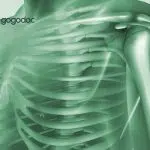What is Diarrhea?
Diarrhea is characterized by loose, watery stools or a frequent need to have a bowel movement. It usually lasts a couple of days and sometimes disappears with none treatment. Diarrhea can be acute or chronic.
- Acute diarrhea occurs when the condition lasts for one to two days. You might experience diarrhea as a result of a viral or bacterial infection. Other times, it could be due to food poisoning.
- There’s even a condition known as traveler’s diarrhea, which happens when you have diarrhea after being exposed to bacteria or parasites while on vacation in a developing nation. Acute diarrhea is fairly common.
- Chronic diarrhea refers to diarrhea that lasts for at least four weeks. It’s usually the result of an intestinal disease or disorder, such as celiac disease or Crohn’s disease.
Causes of diarrhea
You may experience diarrhea as a results of variety of conditions or circumstances. Potential causes of diarrhea include:
A food intolerance, such as lactose intolerance
• A food allergy
• An adverse reaction to a medication
• A viral infection
• A bacterial infection
• An intestinal disease
• A parasitic infection
• Gallbladder or stomach surgery
Rotavirus is a common cause of childhood diarrhea. Bacterial infections due to salmonella or E. coli, among others, are also common.
Chronic diarrhea could also be a symbol of a more serious condition like irritable bowel syndrome or inflammatory bowel disease. Frequent and severe diarrhea might be a symbol of intestinal disease or a functional bowel disorder.
Symptoms of diarrhea:
There are many different symptoms of diarrhea. You may experience just one of those or any combination of all of them. The symptoms depend on the cause. It’s common to feel one or more of the following:
Nausea
Abdominal pain
Cramping
Bloating
Dehydration
A fever
Bloody stools
A frequent urge to evacuate your bowels
A large volume of stools
Talk to your doctor if you’re experiencing any of those symptoms.
Dehydration and diarrhea
Diarrhea can cause you to lose fluids quickly and put you at risk for dehydration. If you don’t receive treatment for diarrhea, it can have very serious effects. The symptoms of dehydration include:
• Fatigue
• Dry mucous membranes
• Increased heart rate
• A headache
• Lightheadedness
• Increased thirst
• Decreased urination
• Dry mouth
Contact your doctor as soon as possible if you think that your diarrhea is causing you to become dehydrated.
Diarrhea in babies and young children
Diarrhea may be a serious condition in very children. It can cause severe dehydration in an infant in only at some point.
Call your child’s doctor or seek emergency care if you see symptoms of dehydration, such as:
- Decreased urination
- • Dry mouth
• A headache
• Fatigue
• A lack of tears when crying
• Dry skin
• Sunken eyes
• Sunken fontanel
• Sleepiness
• Irritability
Seek immediate treatment if any of the subsequent apply to your child:
• They’ve had diarrhea for 24 hours or more.
• They have a fever of 102°F (39°C) or higher.
• They have stools that contain blood.
• They have stools that contain pus.
• They have stools that are black and tarry.
These are all symptoms that indicate an emergency.
Treatments for diarrhea:
The treatment for diarrhea usually requires replacing lost fluids. This simply means you would like to drink more water or electrolyte replacement beverages, like sports drinks.
In more serious cases, you’ll get fluids through intravenous therapy. If a bacterial infection is that the explanation for your diarrhea, your doctor may prescribe antibiotics.
Your doctor will decide your treatment based on:
• The severity of the diarrhea and related condition
• The frequency of the diarrhea and related condition
• The degree of your dehydration status
• Your health
• Your medical history
• Your age
• Your ability to tolerate different procedures or medications
• Expectations for improvement of your condition
How can I prevent diarrhea?
Although diarrhea can occur for various reasons, there are actions that you simply can fancy prevent it:
- You can avoid developing diarrhea from food poisoning by washing the cooking and food preparation areas more frequently.
• Serve food immediately after preparing it.
• Refrigerate leftovers promptly.
• Always thaw frozen food in a refrigerator.
Preventing traveler’s diarrhea
You can help prevent traveler’s diarrhea by taking the subsequent steps when traveling to a developing nation:
• You may want to ask your doctor if you can begin an antibiotic treatment before you leave. This will greatly reduce your risk of developing traveler’s diarrhea.
• Avoid tap water, ice cubes, and fresh produce that has probably been washed with tap water while you’re on vacation.
• Drink bottled water only while on vacation.
• Eat cooked food only while on vacation.
Preventing the spread of viral or bacterial infections
If you’ve got diarrhea that’s thanks to a viral or bacterial infection, you’ll prevent spreading the infection to others by washing your hands more frequently. When you wash your hands, use soap and wash for 20 seconds. Use hand sanitizer when washing your hands isn’t possible.
‘Ask Gogodoc About’ is an educational series providing information on various symptoms, pains, and disorders. (*intended for educational purposes only. If you are experiencing symptoms, please reach out to book an online GP consultation with a Gogodoc GP.) Talk to a doctor online at a time that suits you from home with a phone or video appointment. You can easily book an appointment with GP.
Book a video consultation today! and get expert advice.



